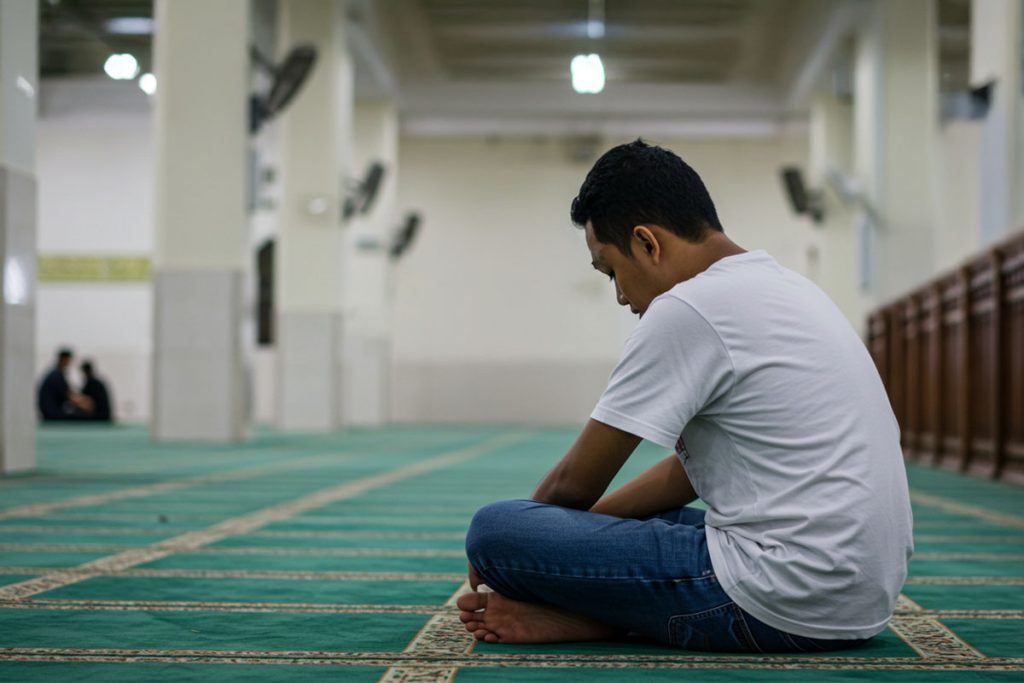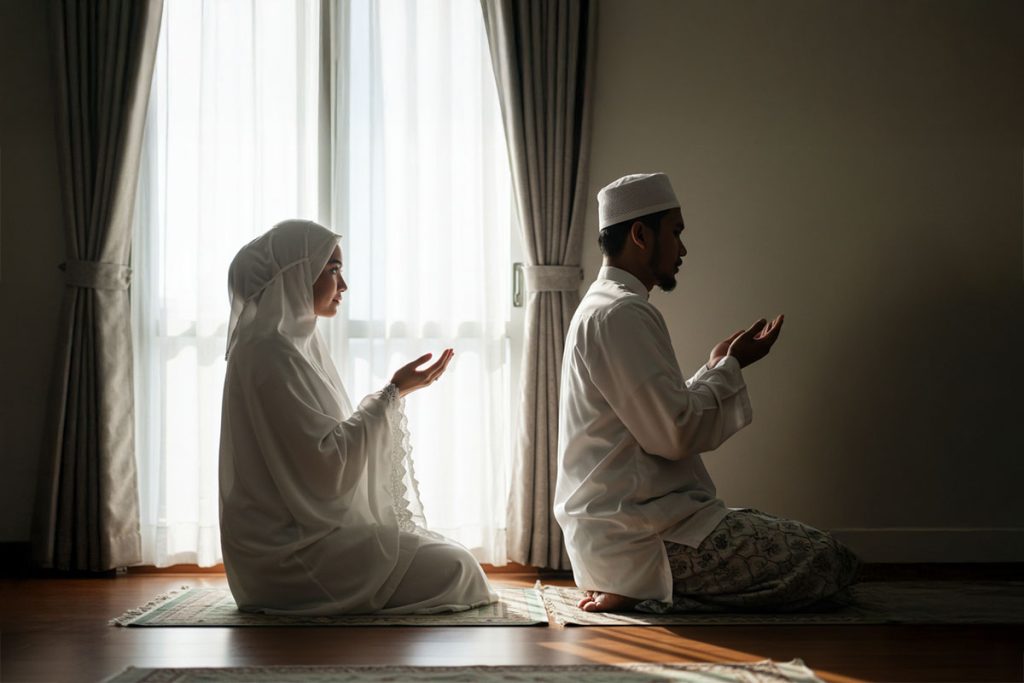In a world grappling with moral decay, instant gratification, and the erosion of family values, the timeless wisdom of Islam offers a profound anchor. For Muslims planning to embark on the sacred journey of marriage, or for couples navigating its inevitable challenges, understanding the true essence of an Islamic union is paramount. It’s not just about finding a partner or fulfilling a social norm; it’s about building a life infused with Barakah – divine blessings, abundance, and grace that transform a marriage into a source of tranquility and spiritual growth. This article delves into how to understand and cultivate such a marriage, grounded in the teachings of the Quran and Sunnah.
What is Barakah in Marriage
Before we build, we must understand the foundation. What exactly is Barakah when we speak of marriage? It’s more than just a fleeting feeling of happiness; it’s a divine goodness bestowed by Allah (SWT) that makes a little go a long way, instills deep contentment, and provides protection.
Signs of Barakah in a marriage often include:
- Sakinah (Tranquility): A profound sense of peace and calm within the home and hearts, even amidst life’s storms.
- Mawaddah (Deep Affectionate Love) & Rahmah (Compassionate Mercy): As Allah mentions in the Quran (30:21), these are signs He has placed between spouses.
- Contentment (Qana’ah): Satisfaction with what Allah has provided, fostering gratitude over constant desire for more.
- Ease in Resolving Conflicts: The ability to navigate disagreements constructively, with mutual respect.
- Mutual Growth in Deen: Spouses encouraging each other towards greater faith and practice.
In an age where society often pushes superficial ideals of romance and success, seking Barakah is the ultimate goal because it makes our marriages resilient, purposeful, and a true source of joy and spiritual elevation.
Pre-Marital Steps to Invite Barakah

The journey towards a Barakah-filled marriage begins long before the Nikah ceremony. These initial steps are crucial in setting the right tone and intention.
The Intention (Niyyah) – The Seed of Barakah:
Why are you getting married? Islamic teachings emphasize the importance of pure intentions. Marrying to fulfill half of your deen, seek lawful companionship, protect chastity, raise a righteous family, and ultimately please Allah, plants the first seed of Barakah. Superficial reasons like wealth, fleeting beauty, or societal pressure often lead to fragile unions.
For those married and facing challenges: This is a powerful moment to pause and renew your intentions. What is the core purpose of your marriage today, and how can you re-align it with seeking Allah’s pleasure?
Seeking a Spouse Who Values Barakah:
The Prophet Muhammad (PBUH) advised us: “A woman is married for four things: her wealth, her lineage, her beauty, and her piety. So, attain the pious one, may your hands be rubbed with dust (i.e., may you prosper).” (Bukhari & Muslim). Prioritizing Deen (religion) and Khuluq (character) over worldly attributes in a potential partner is key. Look for someone who values substance, growth, and a connection with Allah, as this shared vision is vital for a Barakah-rich life.
For those married: Focus on and nurture the Deen and good character traits that attracted you to your spouse, or that you can now cultivate together.
The Power of Du’a and Istikharah:
Never underestimate the power of sincere supplication (Du’a). Ask Allah (SWT) for guidance in choosing the right partner and for Barakah in your decision and future union. The Istikharah prayer is a beautiful tool given to us to seek divine guidance when making significant life choices like marriage.
The Simplicity and Sanctity of the Nikah:
The Nikah (Islamic marriage contract) is a solemn covenant, not merely a social event. While celebration is encouraged, extravagance, un-Islamic practices, and imposing an excessively burdensome Mahr (dowry) can inadvertently strip away Barakah from the very outset. Simplicity and adherence to Islamic principles in the Nikah invite divine blessings.
Nurturing Barakah Within the Marriage

Once the foundation is laid, Barakah must be continuously nurtured. It thrives on conscious effort, righteous actions, and a shared commitment to Islamic principles.
Living by Allah’s Boundaries (The Halal and Haram):
A home where Allah’s commands are respected and His prohibitions are avoided becomes a sanctuary for Barakah. This applies to all aspects of life – from ensuring income is halal (permissible) to the nature of your interactions, entertainment, and how you raise your children. Engaging in haram (forbidden) can slowly erode the blessings in a marriage.
Cultivating Mawaddah (Love) and Rahmah (Mercy):
“And of His signs is that He created for you from yourselves mates that you may find tranquility in them; and He placed between you affection (Mawaddah) and mercy (Rahmah).” (Quran 30:21). These divine gifts need nurturing. Small acts of kindness, expressing appreciation, offering forgiveness readily, spending quality time, maintaining physical intimacy within halal bounds, and overlooking minor faults are practical ways to foster Mawaddah and Rahmah.
For those facing challenges: Consciously re-introduce these elements. A kind word, a helping hand, or an expression of gratitude can begin to mend bridges and re-invite warmth.
The Centrality of Communication & Shura (Consultation):
Healthy communication is the lifeblood of any strong marriage. In Islam, this means speaking truthfully but kindly, listening actively and empathetically, and avoiding harshness, sarcasm, or belittling. Practicing Shura (mutual consultation) in family decisions, big or small, validates each spouse’s importance and fosters unity.
Shared Ibadah (Worship):
Couples who connect with Allah together, grow together. Praying some salah (prayers) together, reading the Quran, making dhikr (remembrance of Allah), fasting, or attending Islamic gatherings can significantly strengthen the spiritual bond and draw Allah’s Barakah upon the household.
Practicing Shukr (Gratitude) and Sabr (Patience):
Life is a mix of ease and hardship. Cultivating Shukr (gratitude) for the blessings in your marriage – and for your spouse – attracts more good. Allah says, “If you are grateful, I will surely increase you [in favor]” (Quran 14:7). Equally, practicing Sabr (patience) during trials, understanding that difficulties can be a test and a means of purification, helps couples navigate challenges without letting them break the marital bond.
Shielding Your Marriage

Building a marriage rich in Barakah is an achievement, but it also requires vigilance to protect it from influences that can diminish or destroy these blessings.
Guarding Against Envy (Hasad) and the Evil Eye:
While sharing joy is natural, Islam teaches moderation and discretion regarding one’s marital blessings to protect against the envy of others and the potential harm of the “evil eye.” Seeking Allah’s protection through morning and evening adhkar (supplications) and reciting specific Quranic chapters is essential.
Managing External Influences Wisely:
Interactions with in-laws, friends, and the wider society can impact a marriage. It’s important to maintain respectful boundaries, filter advice and societal pressures through an Islamic lens, and not allow negative influences or gossip to sow discord between spouses.
Overcoming the Nafs (Ego) and Shaytan’s Whispers:
The human ego (Nafs) – a powerful internal force whose tendencies you can explore further in Understanding Your Nafs in Islam – can manifest as selfishness, pride, or stubbornness, all of which are detrimental to marital harmony. Furthermore, Shaytan (Satan) takes particular delight in breaking marriages. Recognizing these internal and external spiritual battles and consistently seeking refuge in Allah is crucial
When Challenges Arise: Seeking Resolution with Barakah in Mind:
No marriage is without its tests. When conflicts arise, Islam provides a clear framework for resolution that prioritizes reconciliation and preserves dignity. This includes gentle admonition, temporary separation in intimacy (if necessary and as a reforming step), and finally, seeking arbitration from wise and just family members or qualified Muslim counselors. Rushing towards divorce without exhausting these means closes doors to Barakah.
For those facing challenges: Approaching conflict resolution through these Islamic steps, with a sincere desire to please Allah and mend the relationship, can itself be a means of bringing Barakah back into the marriage.
Barakh is a Journey, Not a Destination
A marriage built on seeking and nurturing Barakah blossoms into something truly special. It becomes a haven of Sakinah (tranquility), a partnership built on genuine Mawaddah (love) and Rahmah (mercy). Such a union is resilient against the moral decay of society, provides a stable and loving environment for raising righteous children, and most importantly, becomes a shared journey of drawing closer to Allah (SWT), with the hope of attaining Jannah (Paradise) together.
Understanding marriage in Islam is to understand it as a sacred covenant, a partnership intended to be filled with divine Barakah. This Barakah is a gift from Allah, but it requires our conscious effort, sincere intention, and adherence to Islamic teachings to invite, nurture, and protect it.
- For those planning to marry: Begin this beautiful journey with the right intentions and a commitment to building your future home on the solid foundations of Deen and the pursuit of Barakah.
- For couples facing challenges: Know that it is never too late to turn back to Allah, renew your intentions, and actively work towards infusing your marriage with His blessings. His mercy is vast, and sincere efforts are always rewarded.
May Allah (SWT) bestow His abundant Barakah upon all our marriages, make them sources of comfort, strength, and a means for us to draw ever closer to Him. Ameen.






